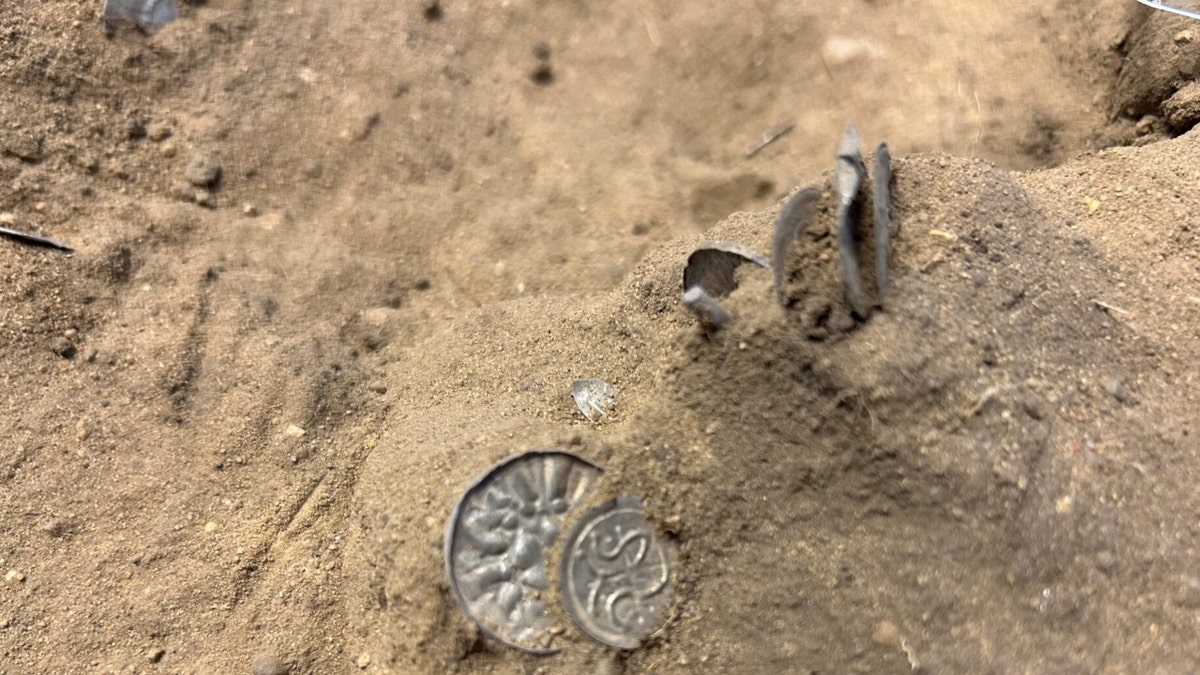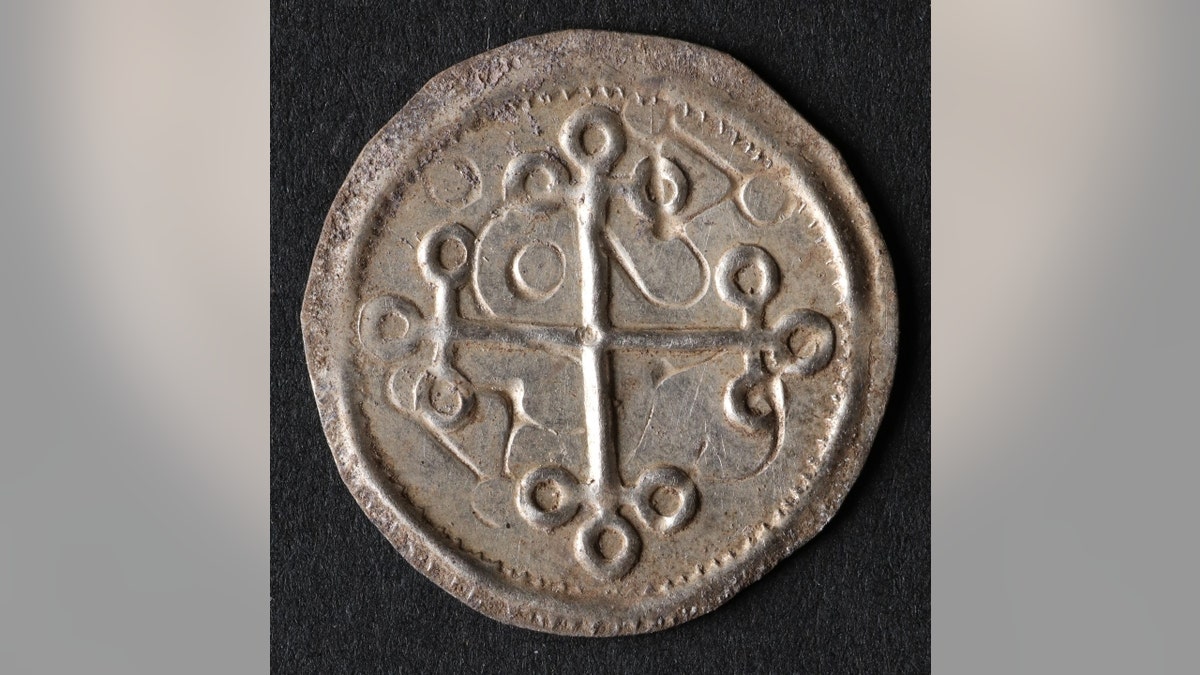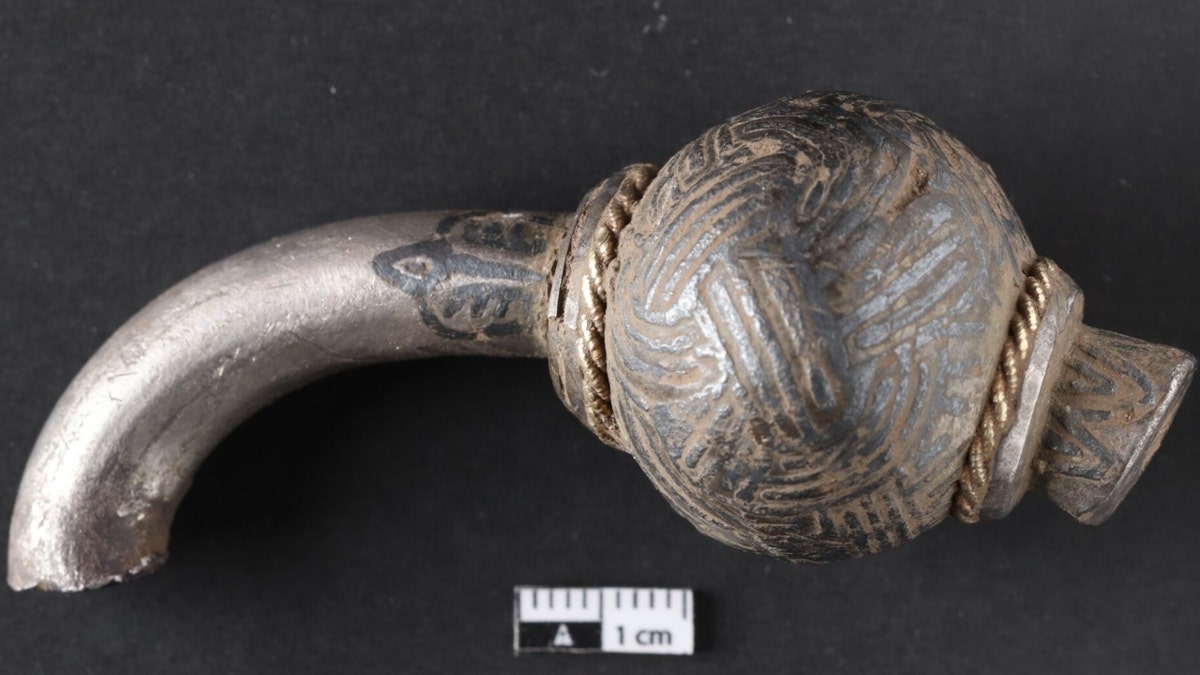Fox News Flash top headlines for April 22
Fox News Flash top headlines are here. Check out what's clicking on Foxnews.com.
Around 300 pieces of silver from two Viking treasures, with approximately 50 whole coins, were found last fall in a Danish field at Bramslev.
The coins were located around fives miles away from the Viking castle Fyrkat, and date back to more than a thousand years ago.
The treasures were found less than 50 meters – or 164 feet – apart, containing the coins and cut-up silver jewelry.
North Jutland Museums said in a statement that the treasures probably served as a means of payment by weight.

The treasures were found in a field northeast of Hobro. (North Jutland Museums)
The rare trove was reportedly unearthed by a young girl who with a metal detector, according to AFP.
While originally buried close to each other, the hoards have been spread over a larger area due to modern ploughing, harrowing and sowing.
Both treasures contain a mixture of Danish, German and Arab coins.
The Danish coins are called cross coins, which were dated back to the reign of King Harald Blåtand, or Harald Bluetooth in English, during the 970s through the 980s.
The museum said the ruler's cross coins were in circulation for less than a few decades before losing the power struggle to his son, Svend Tveskæg, in the mid-980s. It noted that the cross coins were likely introduced in connection with his Christianization of the Danes.

The cross coins were introduction in connection with King Harald Bluetooth's Christianization with the Danes. (North Jutland Museums)
The other pieces of silver come from the same piece of jewelry: an unusually large ring pin. The pins were used by men at the top of society in Viking Age Ireland and neighboring islands.
The museum said jewelry of this size and quality had been worn by bishops and kings, likely originating from a raiding expedition.
"The two silver treasures constitute a fantastic story in themselves, but to find them abandoned in a settlement only eight kilometers from Harald Blåtand's Viking fortress Fyrkat is incredibly exciting," Torben Trier Christiansen, archaeologist and museum inspector at North Jutland Museums, said in a statement. Fyrkat and the king's other ring castles were only use for a short time around the year 980.

The silver pieces come from the same jewelry: a large ring pin. (North Jutland Museums)
"Perhaps the castles were not given up entirely voluntarily, and perhaps it happened in connection with the final showdown between Harald Blåtand and his son Svend Tveskæg. The Bramslev treasures were apparently buried around the same time or shortly after the castles were abandoned, and if there have been disturbances at Fyrkat, it makes good sense that the local magnate here at Bramslev has chosen to hide his valuables out of the way," he explained.
CLICK HERE TO GET THE FOX NEWS APP
Excavation of the area will continue this autumn, focusing on finding the traces of buildings the treasures were originally buried inside, or very close to.
The treasures will be on display this summer at the Aalborg Historical Museum.











































